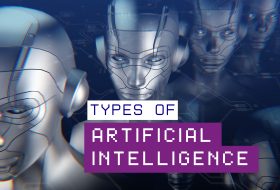The world today is flooded with data. With every activity performed using technology, data is being generated. This data deluge, when intelligently put to use, solves the many complex challenges humans are limited to tackling. The technological landscape is seeing the birth of various fields designated to wrestle with the explosion of information. Among the most prominent fields are Data Science, Machine Learning and Data analytics. These are three closely related fields that are often thrown around interchangeably. We find these three areas often overlapping and working together. However, they are all distinct fields, having different characteristics and applications.
The technological landscape and the labour market today emphasize professionals across different positions, having skills unique and relevant to their job roles. Understanding the nuanced differences between Data Science, Machine Learning and Data Analytics, not just in principle but in their practical applications across industries, has become indispensable for anyone interested in navigating the tech landscape.
This blog is a detailed examination of the distinct methodologies, functions and applications of these three unique yet interrelated fields.
The differences: Data Science vs Machine Learning vs Data Analytics
Data Science, Machine Learning and Data Analytics, all three works in tandem. The distinction among them is visible in their scope, techniques and primary tools, and the objectives each of the field work upon. Understanding these differences will entail delving into the nuances of each field. To give a broad context, let us identify the lines that separate them in a table below:
| Areas of Distinction | Data Science | Machine Learning | Data Analytics |
| Definition | An umbrella term comprising activities that involve using numerous techniques for collecting data and generating insights from the data | Derived from AI and a subset of AI that enables Machines to learn and improve through the data fed to them
| The systematic process of analysing data to draw conclusions |
| Scope | Extensive domain comprising activities including collecting, cleaning, analysing and modelling of data | Major focus on predictive modelling and algorithms | Analysing data and presenting insights in the most comprehensible manner |
| Skills Required | Thorough domain knowledge, Machine Learning, programming, Mathematics, Linear Algebra, Calculus, Data Visualization, Statistics, Data Intuition | Thorough domain knowledge, Mathematics, Statistic, ML Libraries and Algorithms, Software design, Programming | Mathematical skills, Statistical and analytical expertise, programming languages, data visualization, problem-solving |
| Core Techniques | Machine learning, data mining, statistical analysis and models, predictive modelling | Unsupervised learning – Clustering, Unsupervised learning – Classification and regression, and reinforcement learning | Business Intelligence, descriptive, statistics, predictive, and prescriptive analytics, data visualization |
| Core Tools |
|
|
|
| Core Application & Industries |
|
|
|
| Forms of Data Used | Structured, semi-structured, unstructured data. | Structured, semi-structured, unstructured data. | Mostly structured data. |
| Job Roles |
|
|
|
Understanding Data Science
Data science can be defined as an interdisciplinary field that concerns with drawing insights from a large set of data in all forms by combining various expertise, including domain knowledge. Statistics and computer science. It essentially involves the process of collecting, cleaning, analysing and interpreting data to come to a conclusion and drive decision-making. The expert professionals in this field are known as Data scientists. These professionals solve complex problems by deploying their data expertise and algorithms. Their primary role includes collecting data, cleaning and preparing data, analysing data and deriving valuable insights from data and assisting organizations in their decision-making processes. Data science is the broadest of the three domains, which covers the entire process of drawing insights from data.
Essence of Data science
Data science typically goes through a lifecycle consisting of five stages :
Capturing: This stage entails data acquisition, data entry, signal reception and data extraction. This is the stage, data is collected in varied forms-from structured to semi-structured to unstructured.
Maintaining: This stage is the process of maintaining the data collected in an appropriate form for further analysis. It involves, warehousing, cleansing, staging, processing and architecting.
Processing: In this stage is where data scientists examines the prepared data and determines its applicability and value in predictive analysis. It involves the processes of mining, classification/clustering, modelling and summarizing the data.
Analysing: This stage is where the data scientists perform the data analysis by putting various steps in action, including: exploratory/confirmatory, predictive analysis, regression, text mining and qualitative analysis.
Communicating: This is where the final product is brought to a full-fledged report in an easily readable form like graphs, charts, etc. It includes data reporting, data visualization, business intelligence and decision-making.
Data science Skill Prerequisites
For professionals to tread the data science path must have the following skills:
Statistical Analysis: Proficiency in the fundamentals and statistical techniques is crucial to understand data distribution and performing statistical processes of data
Programming Skills: Adept at programming languages
Data Cleaning and Processing: Must be capable of handling data in all forms
Machine Learning: Must know about algorithms and their strengths and weakness.
Data Visualization: Essential for communicating insights to diverse sets of people
Domain-Specific Knowledge: To derive valuable insights
SQL: For efficient handling and managing of relational databases
Big Data Tech: Must be familiar with big data technologies like Hadoop and Spark to handle large scale data-sets
Problem-Solving: Critical for Identifying business issues
Data Ethics and privacy: Must know about the ethical considerations of data and ensuring privacy.
Career Opportunities in Data Science
- Data Scientist
- Data Analyst
- Machine Learning Engineer
- Data Engineer
- Business Intelligence Analyst
- Data Science Manager
- Quantitative Analyst
- Data Architect
- AI Engineer
- Statistician
Understanding Machine Learning
Machine Learning is a subset of artificial intelligence which has surfaced to prominence with the world’s increasing adoption of robotics. Machine Learning can also be referred to as a tool employed for creating algorithms that can learn to detect patterns and make predictions using those patterns. The goal of Machine Learning is to develop pattern-spotting algorithms capable of automating the various aspects of data analytics. It does what a human being cannot possibly do by learning to spot patterns from the enormous amounts of data the machine has been fed on.
Machine Learning employs statistical and mathematical methodologies for training models on data and using the models for making precisions and business-decisions.
Machine Learning Skill Prerequisites
Becoming a Machine Learning Engineer demands mastery of the following skills
Mathematics and Statistics: Fundamental to Machine learning and all data-driven domains, mastery in statistics, linear algebra, and calculus is essential.
Machine Learning Algorithms: Must be adept at several ML algorithms, including supervised and unsupervised learning.
Programming Skills: Must be proficient in Python, R or Julia for processing data, building applications and implementing ML algorithms.
Data Processing: Must know cleansing, preprocessing, and converting raw data into appropriate format for machine learning.
Data Visualization: Adept at data visualization frameworks and libraries including Seaborn, Matplotlib, Plotly, etc.
Machine Learning Frameworks: Must know key ML frameworks and libraries including PyTorch, TensorFlow, Keras, etc.
Apart from these key prerequisites, Machine learning engineers are also expected to have prowess in the following areas:
- Feature engineering
- Model evaluation
- Hyperparameter tuning
- Version control
- Cloud computing
- Databases and SQL
- Deep Learning
- Natural Language Processing (NLP)
- Computer Vision
Career Opportunities in Machine Learning
- Machine Learning Engineer
- Data Scientist
- Deep Learning Engineer
- AI Research Scientist
- Computer Vision Engineer
- NLP Engineer
- Reinforcement Learning Engineer
- AI Ethics and Bias Analyst
- AI Product Manager
- Machine Learning Consultant/Trainer/Instructor
- Quantum Machine Learning Scientist
Understanding Data Analytics
The process of examining, cleaning, transforming and interpreting data and identifying meaningful patterns and insights can be referred to as data analytics. The job of a data analyst is to curate meaningful and actionable insights through the application of various tools and techniques. Unlke Data Sceince, Data Analytics require having more intimate knowledge of a specific area of an organization. They process raw data and offer actionable insights to the organization. Their recommendation ranges from offering insights into cost-cutting areas, features for new products and services, or the best methods for organisational advertising budget. The tasks of a data analyst go beyond finding patterns in data. They communicating their findings effectively to assert their recommendations for business decision-making.
Data Analytics Prerequisites
Domain Knowledge: Must have domain- industry-specific knowledge for effective data interpretation.
Data Cleansing and Preprocessing: From assessing data quality to handling missing values, data analysts must be well-versed with data cleaning and preprocessing.
Data Interpretation: Must have the skills to contextualize their interpretation based on the research and business issues.
Programming Skills: Must know programming languages and be adept at Python or R
Knowledge of SQL: Must know SQL to query and retrieve data from relational databases.
Problem-solving: Must have strong problem-solving skills to discover data-related challenges.
Data Analysis tools and Libraries: For streamlining analytical tasks
Business Acumen: For aligning analysis with organizational goals.
Critical- thinking: For accurate and reliable results, data analysts must know how to evaluate data crcitically.
Data Ethics: For ethical consideration of data.
Career Opportunities in Data Analytics
- Business Analyst
- Financial Analyst
- Marketing Analyst
- Operations Analyst
- Sales Analyst
- Healthcare Data Analyst
- Supply Chain Analyst
- HR Data Analyst
- Risk Analyst










